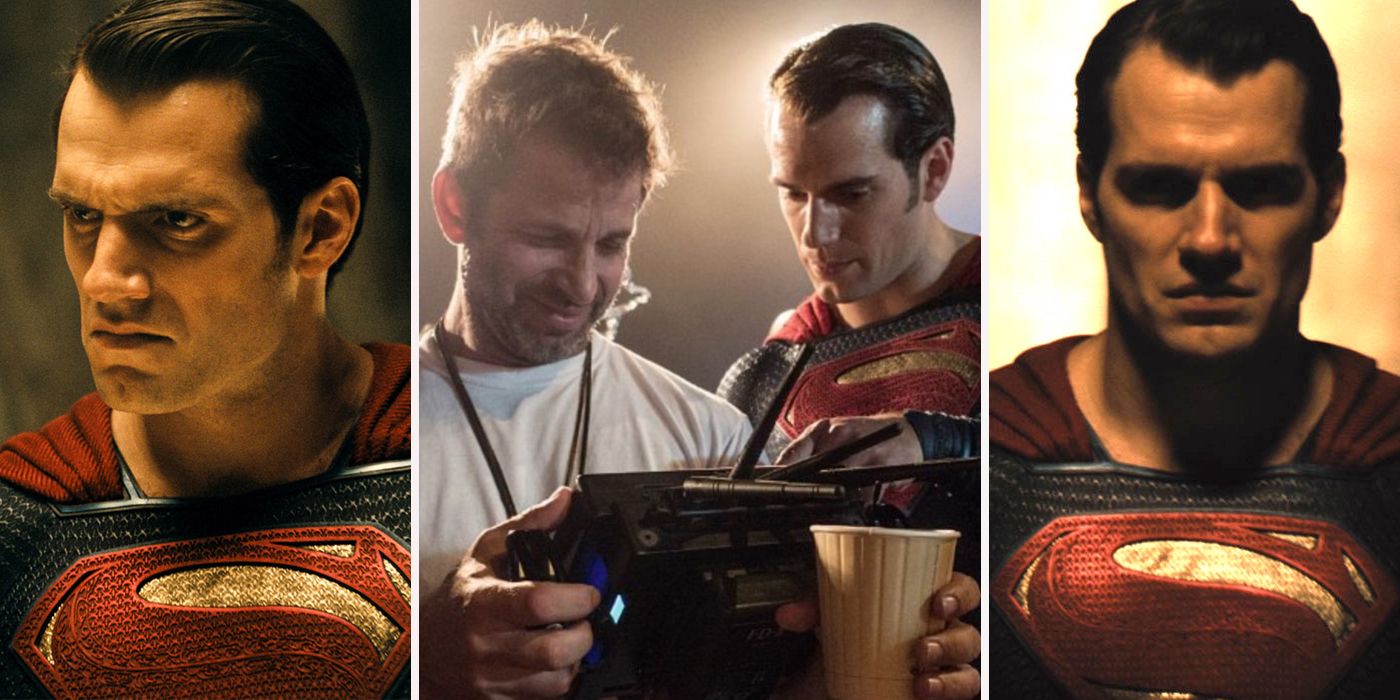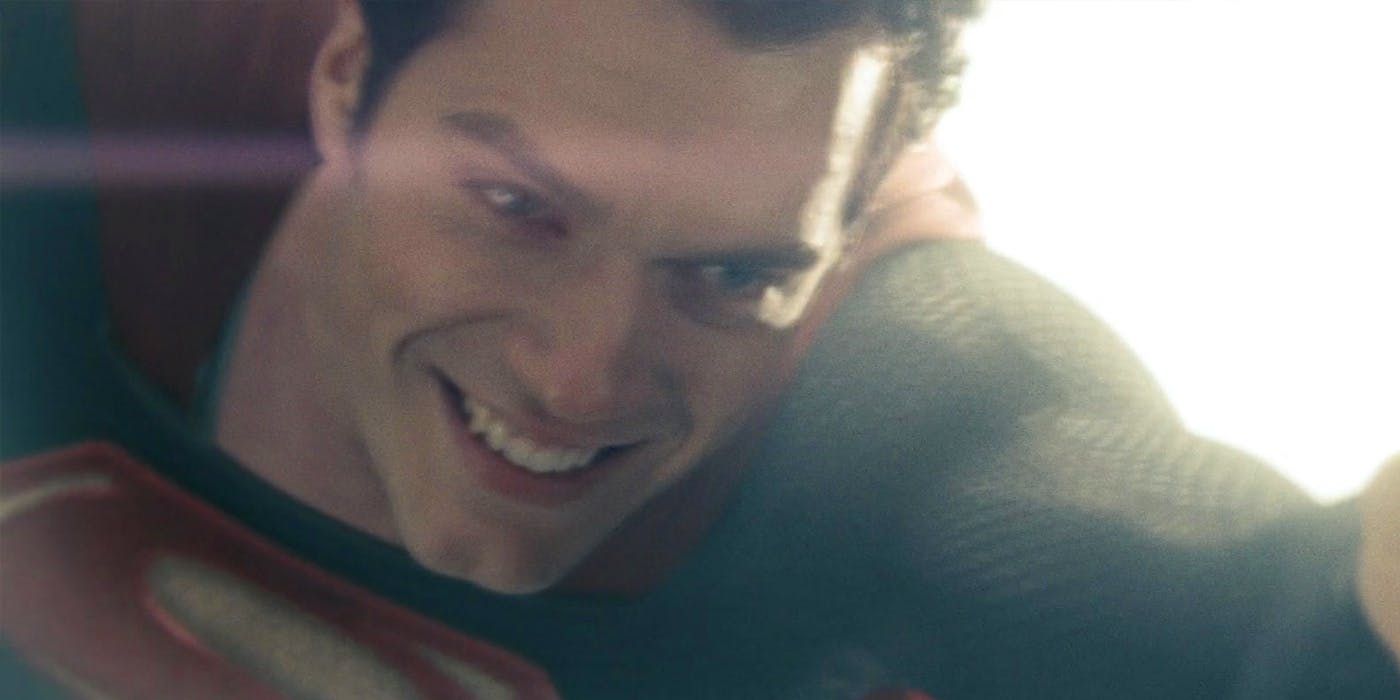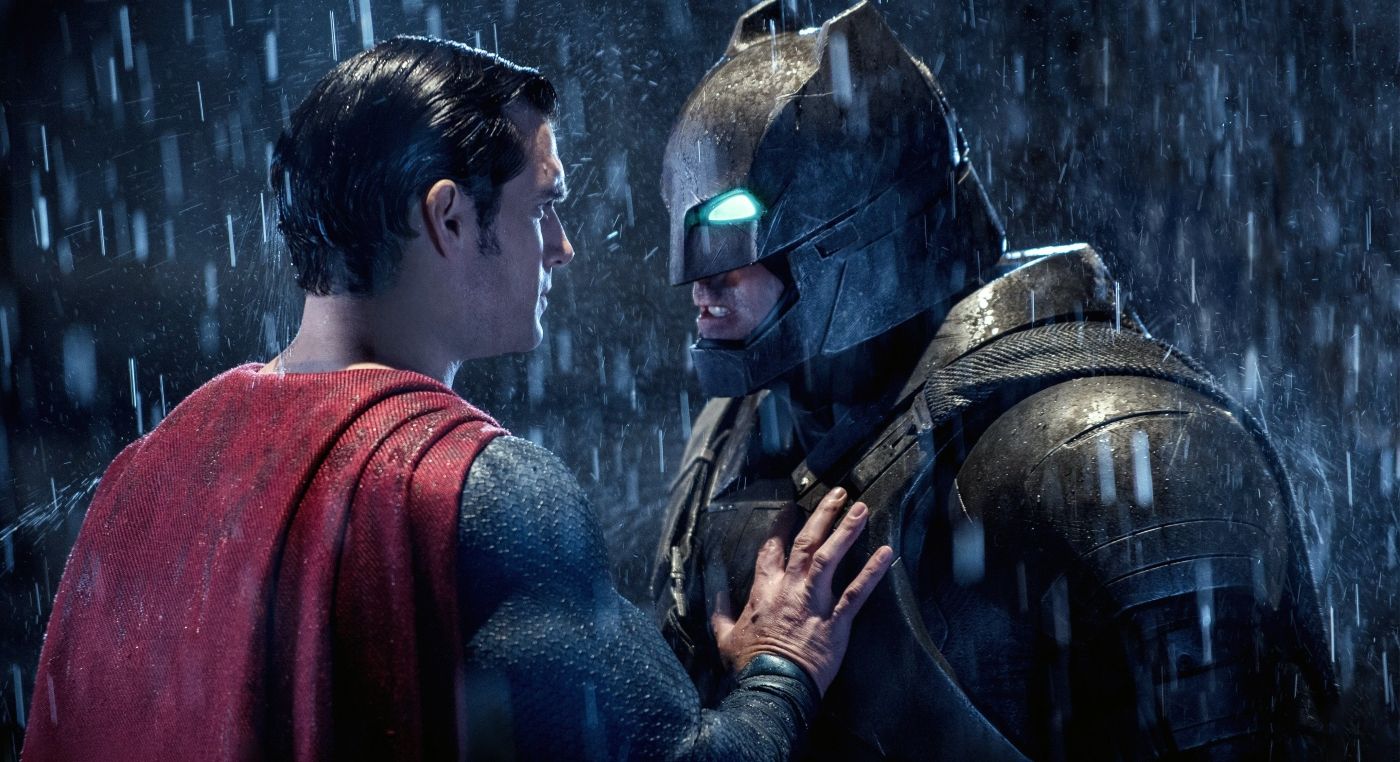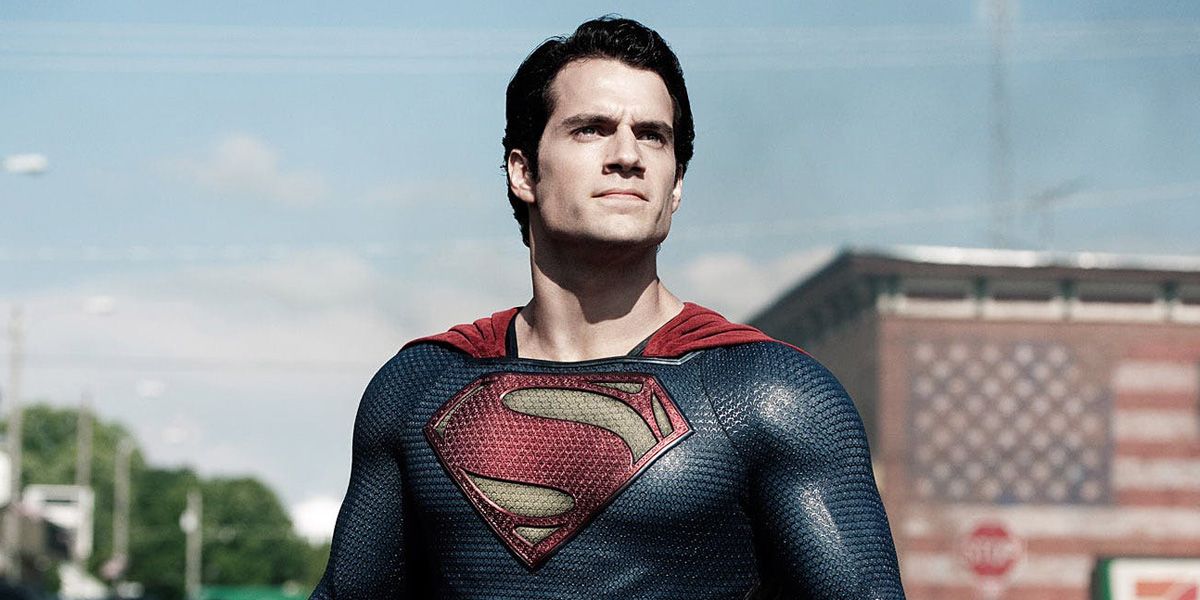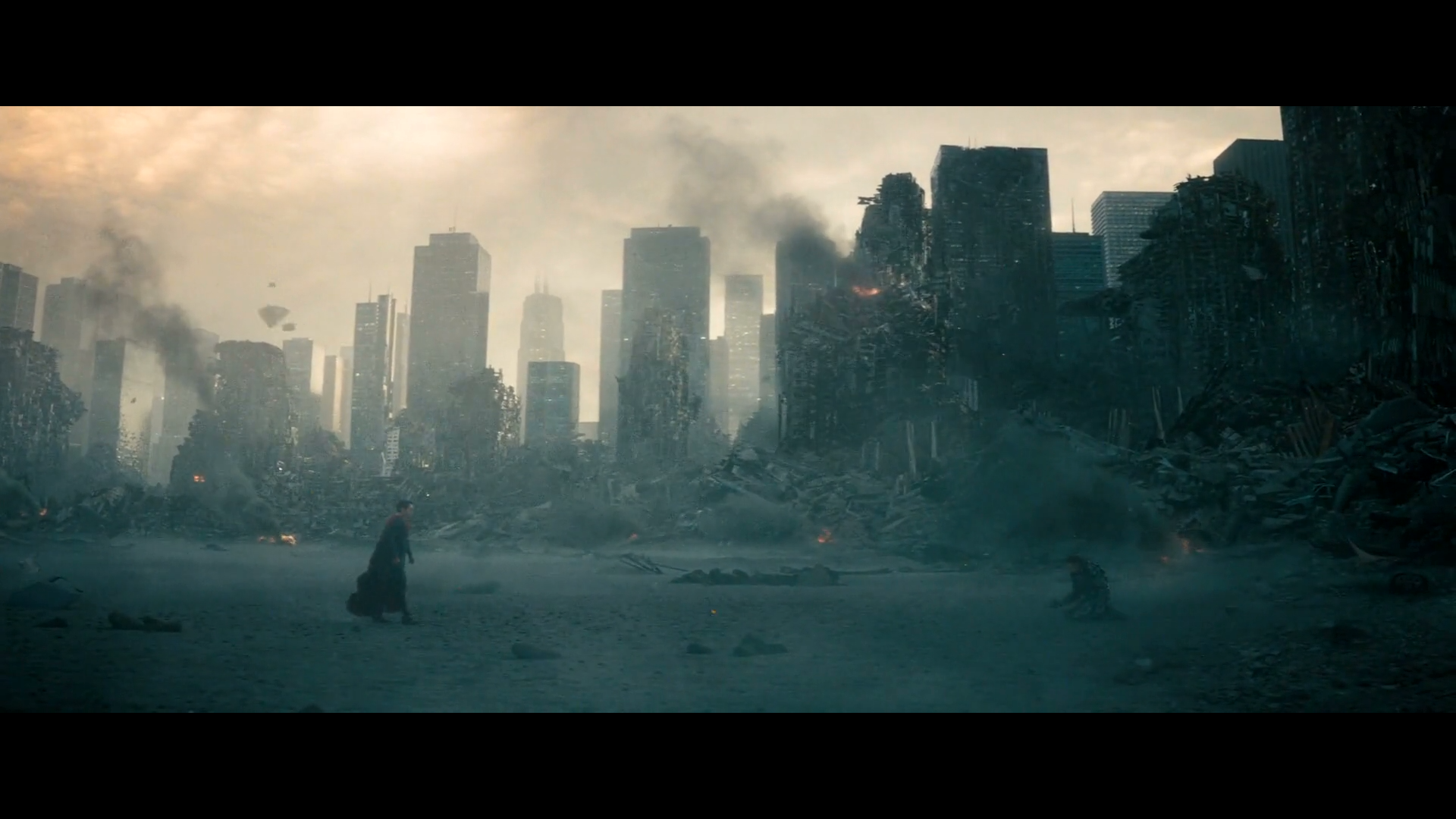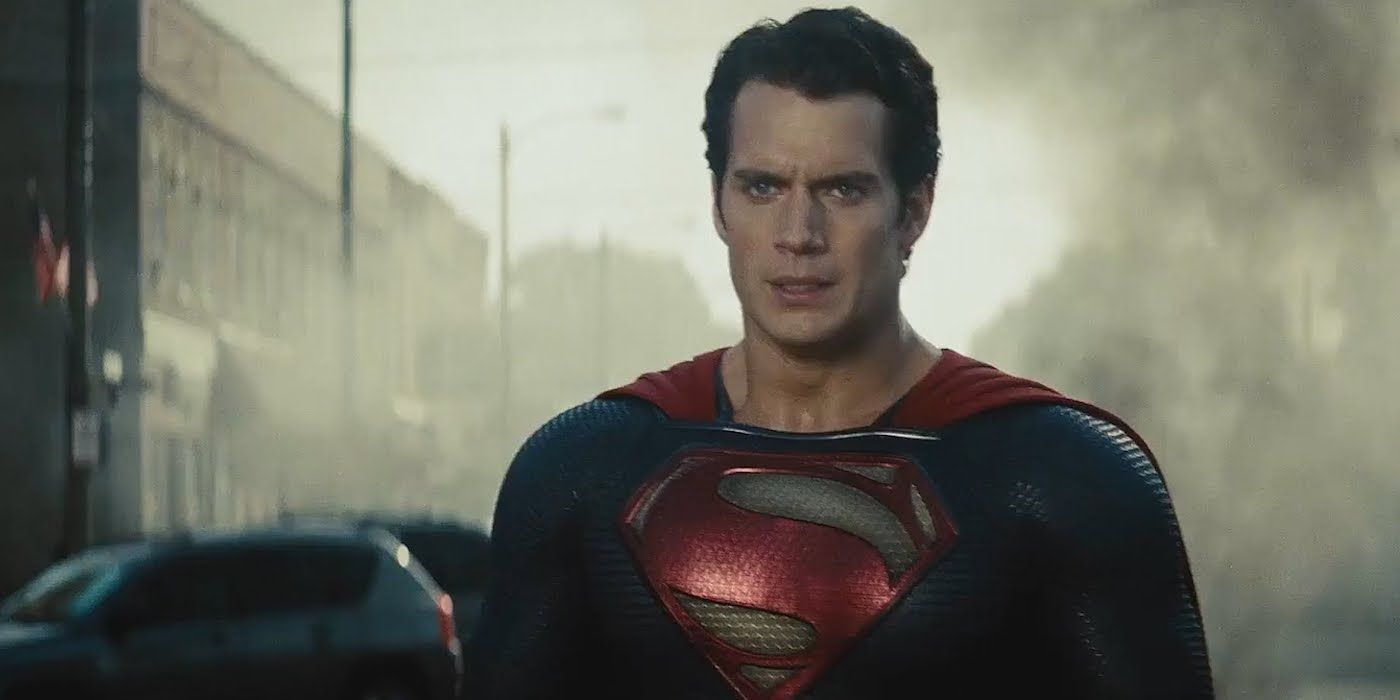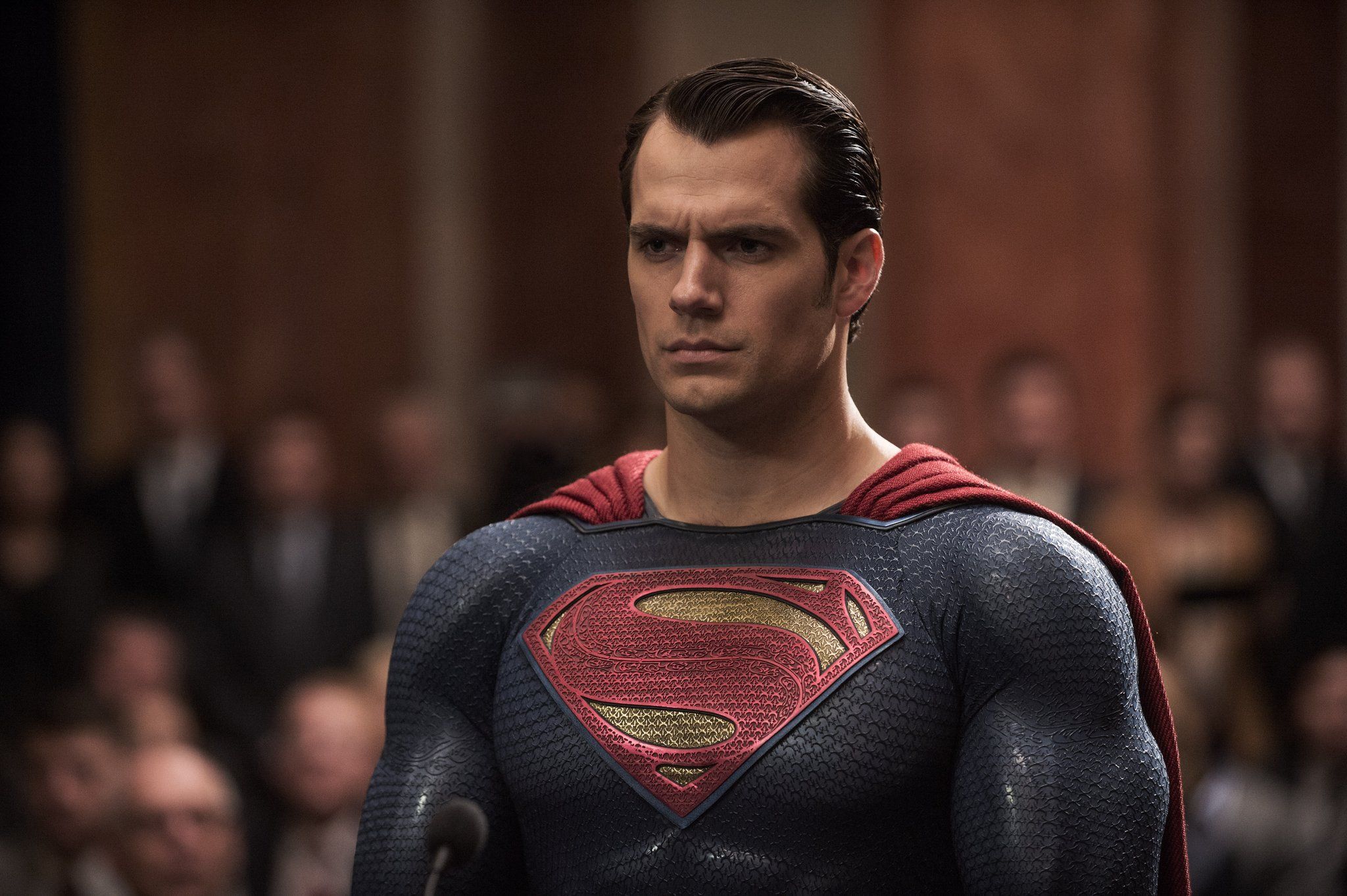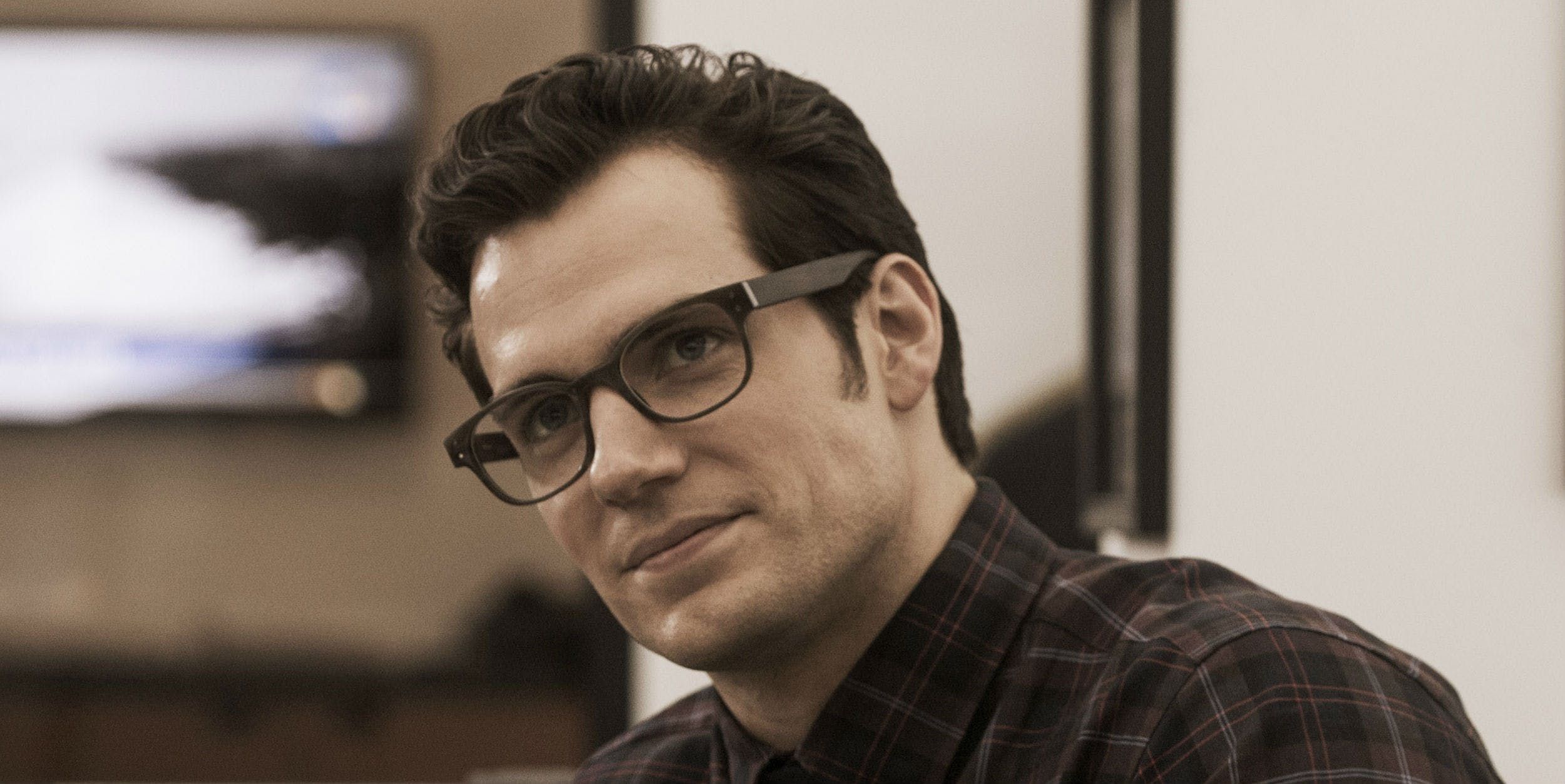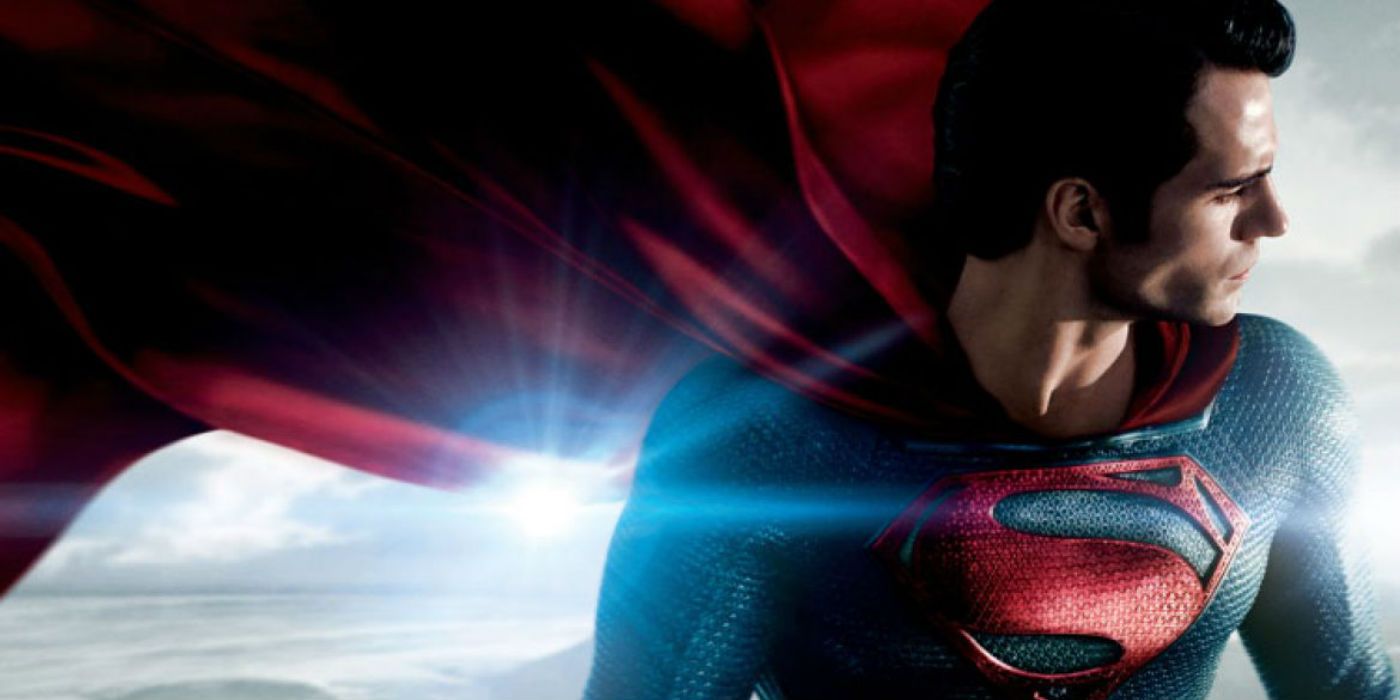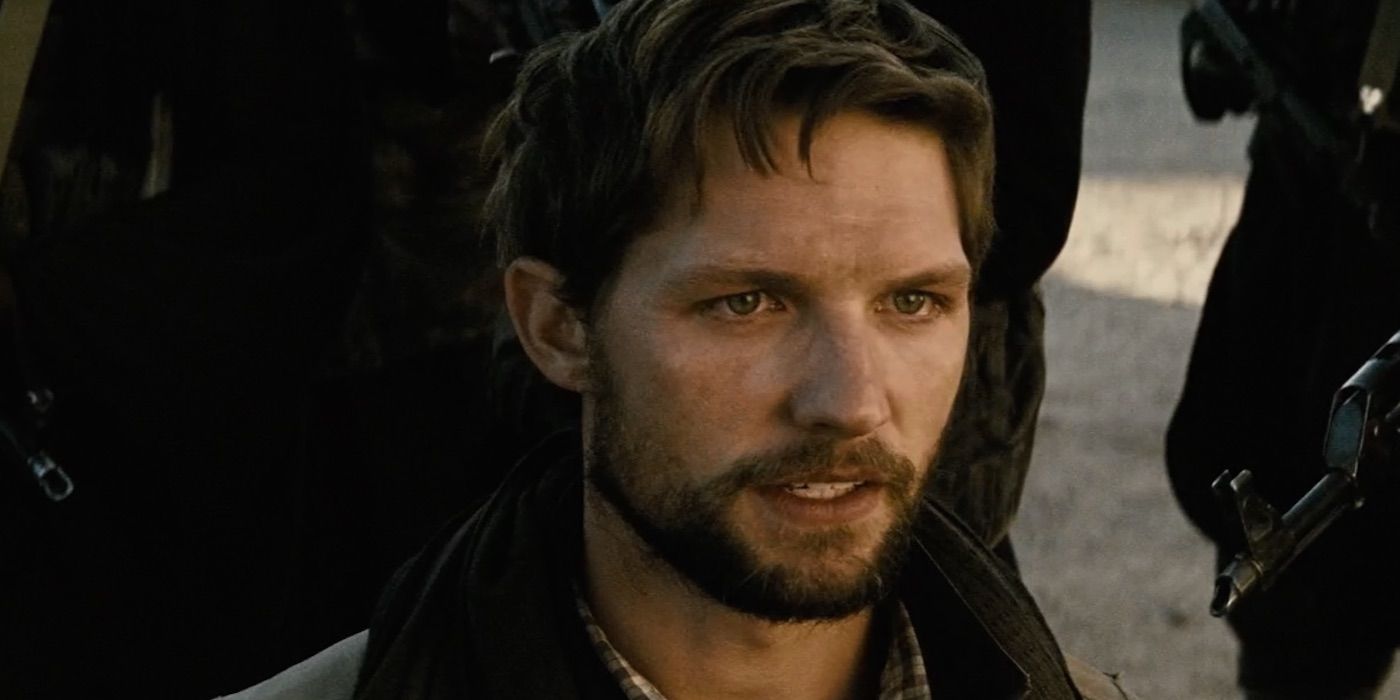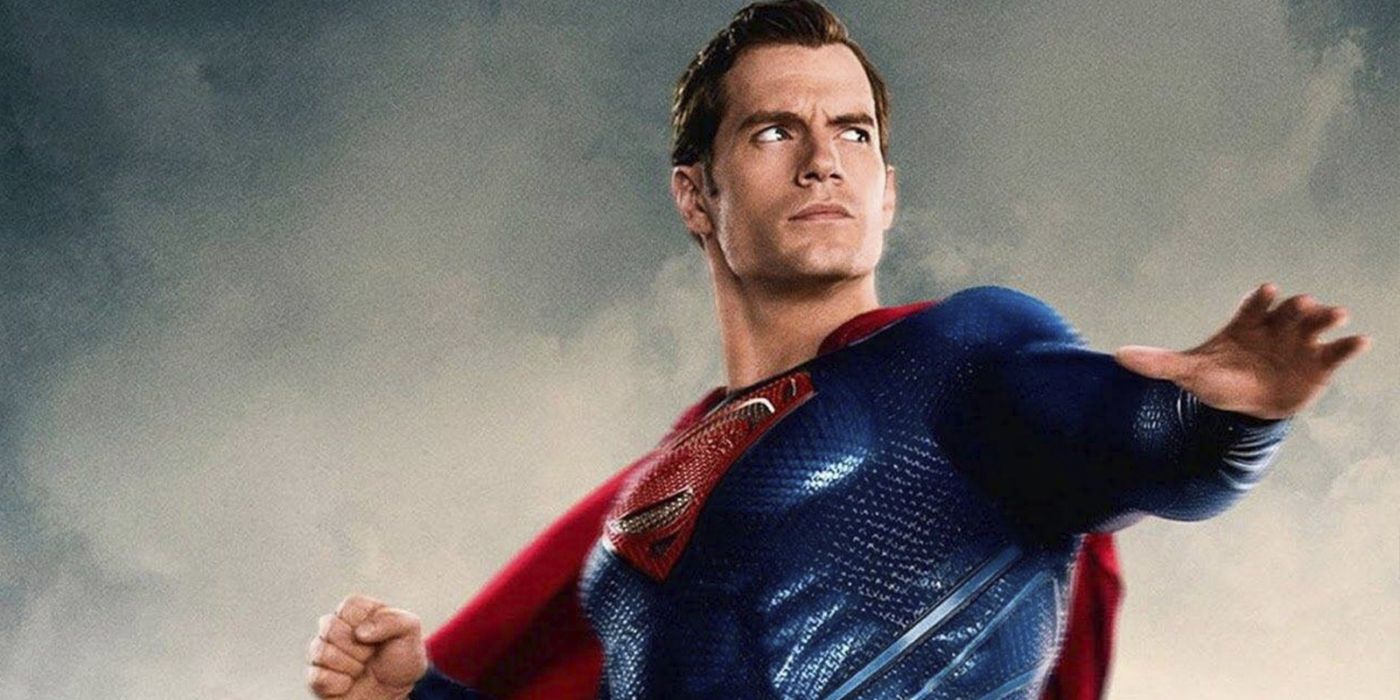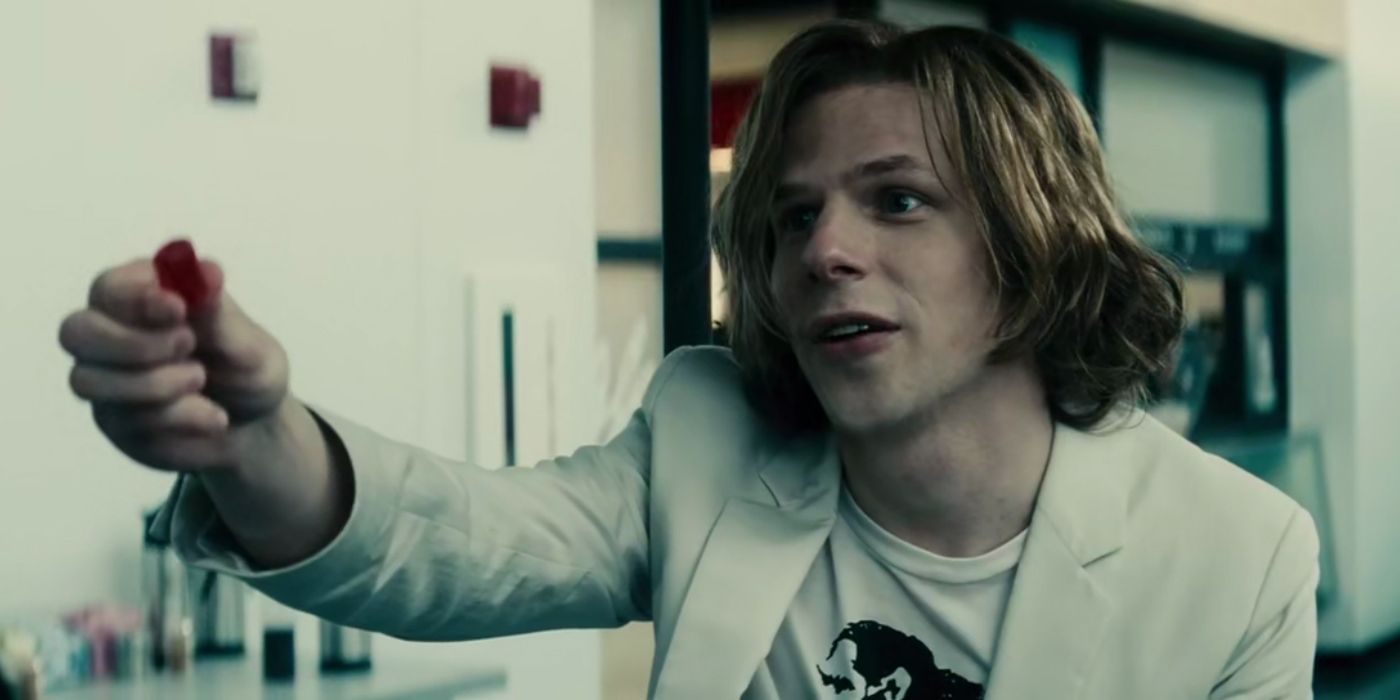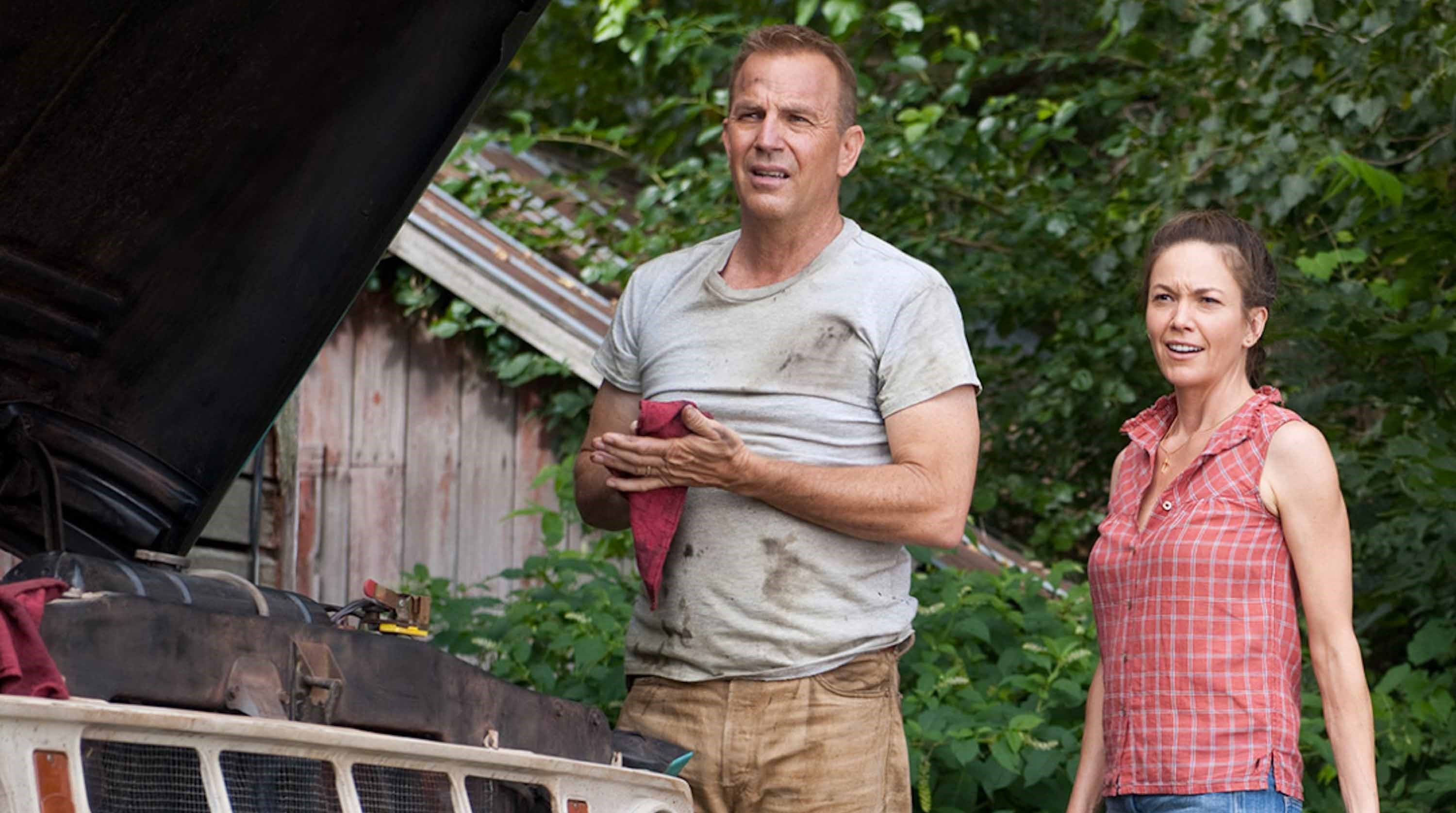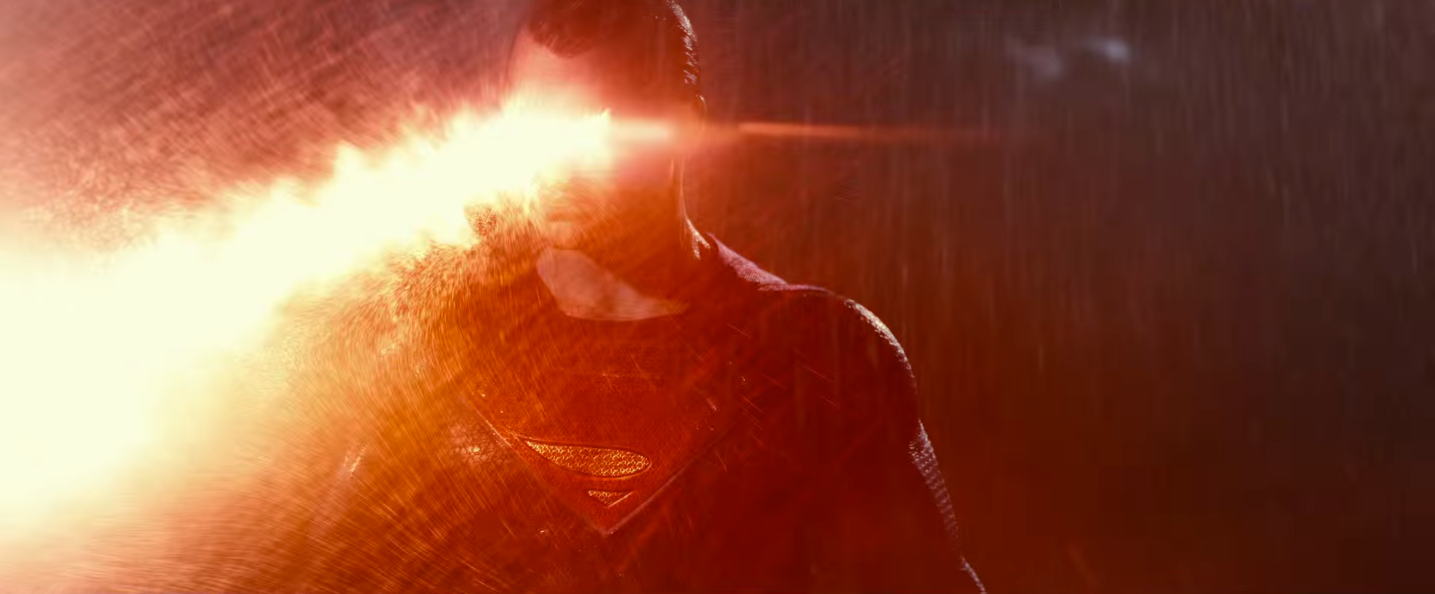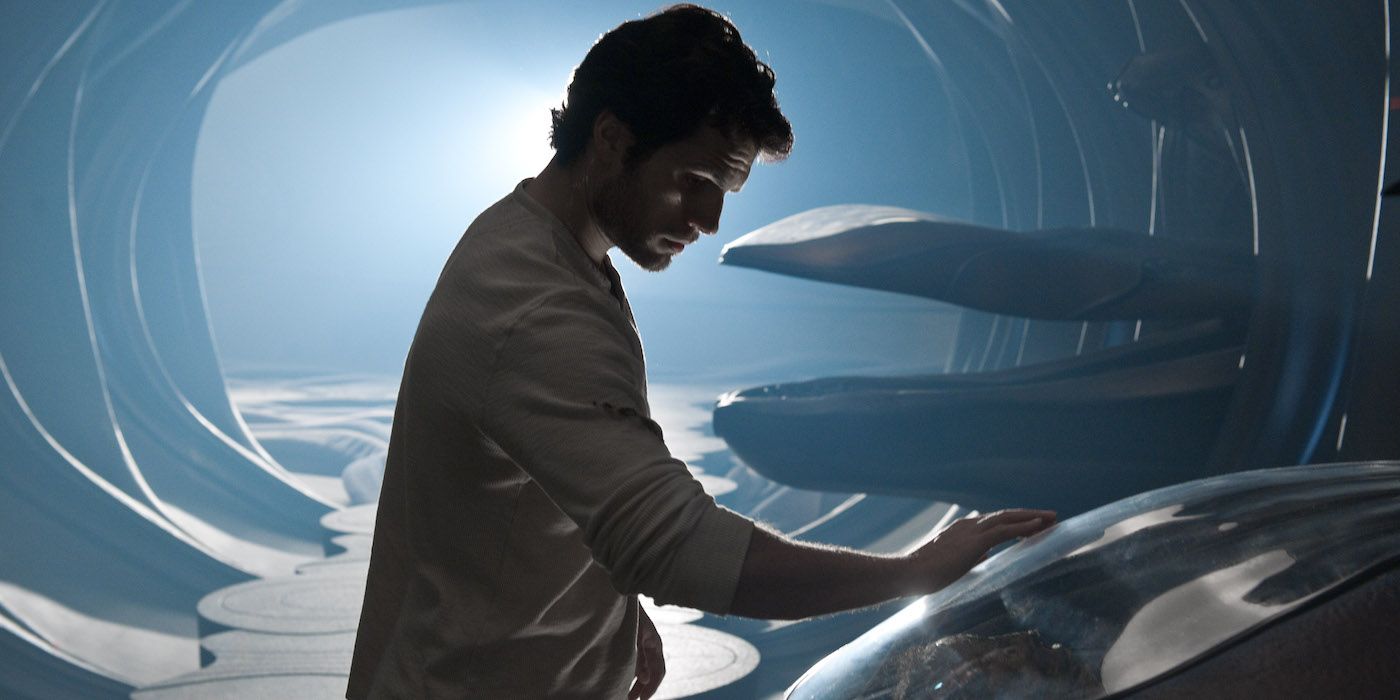At this point, any argument in favor of the desolate DC Extended Universe has to focus on Gal Gadot and Patty Jenkins’ Wonder Woman. Any and every other facet of the cinematic franchise has thus far ranged from confusing to outright stupid. And a big part of its awfulness draws from Warner Brothers’ decision to let divisive auteur Zack Snyder set the tone for the entire universe by directing Man of Steel, Batman V. Superman: Dawn of Justice, and most of Justice League. While Snyder has a distinctive, polarizing film style, nobody can say he doesn’t understand visual storytelling. Unfortunately, that doesn’t mean he can understand comic books.
His first forays into the genre, Watchmen and 300, were visually stunning direct translations from the original source materials but seemed to lack their nuance and depth. Subsequently, Snyder unveiled that he’d never been a fan of traditional superhero comic books and always gravitated to more graphic, adult material. Making him the perfect person to bring the newest version of Superman, the single most iconic, classic, family-friendly superhero of all time, to the big screen, right? Obviously not because this list exists. Here are 15 things Zack Snyder needs to understand about Superman.
15 HE'S SUPPOSED TO BE SILLY
A chief complaint of the DCEU in general is that it has thus far kept itself at arm’s length from anything resembling humor. One of the main selling points of the rival Marvel movies (and no, it isn’t unfair to compare the DCEU to the MCU) is their shared embracing of the ludicrous nature of the source material. Admitting to itself that it’s adapting comic books, Marvel Studios consistently ensures its films include a healthy amount of levity and comedy.
But because Snyder takes himself too seriously as an artist, his art, in turn, takes itself too seriously.
Superman is such a powerful character that his only successful cinematic adaptation, the Christopher Reeves version, dropped one-liners left and right just because he could. And some forty years after the fact, Snyder won’t even let Superman smile.
14 THE DECONSTRUCTION OF SUPERMAN
One of the loudest arguments that misguided fans desperate to find something to like about the new DC movies is that they are based on intentional genre deconstructions and if people didn’t get it, then they simply don’t understand how subversion works. Pointing out the flaws in this point of view in terms of the larger DCEU would take a full academic essay, but specifying the issues with deconstruction Superman can be summed up with one simple question: what’s the point?
Batman V. Superman was extremely loosely based on Frank Miller’s The Dark Knight Returns, where Superman was exaggerated to the point where he was an all-American fascist in the pocket of the government, showing that anyone so slavishly devoted to legal justice was easily brainwashed by the system. But since his motivation was nonsensical in the film, the deconstruction of Superman and his reputation had no such impact.
13 THE SUPERMAN OF THE COMICS DESERVES RESPECT
Despite his status as the absolute grand daddy of all comic book superheroes, or perhaps because of it, Superman is a deceptively interesting character. His whole shtick is that he has the ability to see and hear all of humanity’s flaws and the godlike power to force the world into order, but choses to live among and act as protector to humans instead because of an unwavering faith in our inherent potential. Any and all conflict that arises around him is caused by people or villains challenging either that belief or the safety that belief provides him.
But Zack Snyder sees things differently. To him, Superman can’t be an interesting lead unless he’s questioning his own impact on the world around him.
But seriously? This is Superman! He doesn’t need to question himself because he is constantly aware that his deeds are meant for humanity’s benefit, not his own.
12 SUPERMAN AVOIDS COLLATERAL DAMAGE
Probably the single biggest complain about Man of Steel was the ending fight sequence where Superman and Zod basically wreck most of downtown Metropolis. The backlash was so severe and pointed that Snyder hung a lampshade on it with a derivative line in Batman V. Superman. But what Snyder didn’t seem to understand is that audiences weren’t upset seeing innocent people die or buildings being destroyed, other movies have done that and done it better and more graphicly.
What upset people is that it was Superman, the universal symbol of ultimate defense and protection. And Metropolis is his city, a place so sacred to him that when it was destroyed in an alternate universe, it triggered the Injustice storyline. Even if it was the first time he was visiting the city in the DCEU, he had dozens of options to protect its denizens and actively chose the most destructive ones.
11 SUPERMAN ISN'T SELFISH
Just as a causal reminder, Snyder’s Superman destroyed a multi-million-dollar military drone because he didn’t want to be followed. While nobody likes to be spied on, this is Superman we’re talking about. It would have taken considerably less effort to merely disable the drone, ask the military to kindly leave him alone, and hang up his cape for the night. That’s just a small example of the many, many moments in the now three DCEU movies he’s been in where Superman actively puts his own interests before those of others or even the films’ own internal logic.
This not only makes him selfish, it makes him pretty stupid as well.
It goes without saying that the comic version, you know, the one everyone fell in love with over the last seventy years, is a paragon of selflessness and forethought.
10 SUPERMAN DOESN'T WORK WITH REALISM
A note in Snyder’s favor: he is one of the few neo-classicist auteurs left in Hollywood and he knows how to present that ideology in just about any format. For something like Superman, it almost makes sense for his sensibilities to make it an homage to realist cinema, which actively tries to make everything in the film as natural as possible. For example, he downplayed the importance of Metropolis to make it appear as though it were an actual city.
The problem arises when he tries to portray an alien demigod as something in the real world. Not only is Superman physically difficult to represent as realistic, but the conflicted personality that Snyder chose for the character is made all the more impossible to relate to when it's shown as something supposedly natural for such a figure to go through.
9 SUPERMAN DOESN'T RUN FROM THE PRESS
This isn’t necessarily a big qualm about Snyder’s version of Superman, but it is a valid criticism of Batman V. Superman’s nonsensical plot. A major theme of the movie is that people don’t seem to trust Superman because he’s a literal illegal alien. Apparently, social commentary doesn’t necessarily need to be subtle. As a result, there are multiple scenes of Superman watching multiple news outlets with celebrity guests hypothesizing his potential motivation and purposes.
This naturally puts Snyder’s Superman in a rut and makes him mope even more than he already does.
Here’s the thing, Clark Kent is a reporter. He’s dating a Pulitzer-prize winning reporter who knows his secret identity. There is nothing about Superman that would prevent him from setting the record straight. After all, the whole reason for him not wearing a mask is that he wants people to know what a genuine person he is.
8 SUPERMAN IS SUPPOSED TO INSPIRE HOPE
A major advantage that Snyder was blessed with when approaching the DCEU product was that Superman is as recognizable a figure as Santa Claus. You could show an ‘S’ in a pentagon to almost anyone on the planet and they’ll immediately know that it’s Superman’s sigil, a sign of truth, justice, and, above all, hope. This is a symbol used by charities around the world to inspire feelings of good will and optimism.
That comparison to Santa Clause earlier? It wasn’t just hyperbole, both are ageless icons of not just general goodness but all that being good and just means in a confusing world where those terms are difficult to define. So when you walk away from a Superman movie and don’t feel inspired to show the same devotion to those ideals, it’s indicative of a larger problem with the movie you just saw.
7 SUPERMAN ISN'T A NIHILIST
Perhaps the most offensive part of Batman V. Superman is all of it. But one moment that stands out as particularly hurtful to Superman fans is a line he delivers after saving Lois and before he goes to the disappointing title fight. “Nothing stays good in this world,” he says as he prepares to underwhelm. Even the ‘gritty’ version of the character that Snyder had thus far presented had not gotten so existentially depressing.
Certainly the comic version of Superman would never be so aggressively apathetic to the state of morality.
Superman is supposed to inspire hope because he is hopeful himself that humanity can learn from the upright example he gives them. If he’s suddenly a soured nihilist, is he supposed to make humanity witness the worst of itself instead? That doesn’t exactly sell tickets, Snyder.
6 JIMMY OLSEN IS IMPORTANT
Superman’s pal Jimmy Olsen is arguably the third most critical part of his larger mythos. He’s always been an audience point of view character who revered Superman as a pseudo father figure, an inherently chipper figure representing exactly how Superman wanted people to see him. Obviously, this doesn’t mesh with Snyder’s darker version of the hero. As a result, Olsen should have been altered in order to include Superman’s objective through-line to humanity in his larger narrative.
Instead, Snyder gave poor Jimmy less than a minute of screen time before having him executed just to shock the audience into realizing how ‘adult’ the movie was going to be. Not only is this a blatant waste of potential, but it makes it harder to care about the film right from the get go. After all, if Superman’s designated ambassador of youthful hope is so easily killed, why should any character matter?
5 SUPERMAN IS SUPPOSED TO BE COLORFUL
There’s a reason that the black solar suit version of him in the comics didn’t become nearly as iconic as the original red, blue, and yellow outfit, simply because people knew that Superman is supposed to be bright and colorful. This is an inherent reflection of what he represents; generic American values and overall optimism.
Unfortunately, Snyder has a slavish devotion to his own cinematic style which tends to lean towards more chromatically dichotic.
As a result, Henry Cavill appeared on-screen not only wearing an ugly, mesh costume, but one that was so drained of color that he almost looked like he actually was wearing the black solar suit. The problem honestly might have been solved by giving Superman a pair of red briefs to wear on the outside of his costume. You know, like what he’s supposed to have.
4 LEX LUTHOR ISN'T INSANE, JUST EVIL
Arguably the single worst individual aspect of the offensively bad Batman V. Superman was Jesse Eisenberg as Lex Luthor. Snyder’s reimagining of Superman’s primary villain as a Mark Zuckerberg-style new money tech isn’t a bad idea necessarily, but having Eisenberg play him as a psychotic, over-anxious loon with multiple conflicting motivations hopped up on all the drugs in the world had to be an intentionally wrong choice.
Seriously, Snyder’s version of Lex Luthor, Superman’s polar opposite and the self-centered voice of humanism in the comics, is portrayed as a college freshmen who took philosophy 101 and decided he agreed with every single word he’d read even if it clashed with the stuff he’d read previously. The differences between this character and the one in the comics are innumerable, but the most important is that the Luthor if the comics is interesting, or at least consistent.
3 THE KENTS ARE NOT MALICIOUS
A critical part of Superman’s personality is formed by his upbringing in rural Kansas as the adopted son of the Kents, simple, kindly farmers who instill in their progeny the patriotic and moral values that abound in the American Midwest.
But Snyder doesn’t abide by that good-boy-from-Kansas routine and decided the best way to circumvent that notion was to drastically alter just who the Kents were.
His version of John Kent, for example, openly suggests to his young, impressionable, demigod son that maybe keeping his powers a secret is more important than the lives of a school bus full of children. In Batman V. Superman, Martha Kent, the woman whose name forms both the ‘emotional’ core of the film and its biggest gaffe, plays devil’s advocate and reminds Superman that he could easily abandon humanity to its own doom with little guilt or repercussions.
2 SUPERMAN HAS MORE THAN FOUR POWERS
In the Golden Age of comics, Superman had any and all powers that writers could think for him. By the time Infinite Crisis rolled around, his powers had been wisely scaled back to being only mostly OP. In the ‘Snyderverse,’ however, Superman has demonstrated that he can fly really fast, lift things that are heavy, shoot lasers out of his eyes, and has super senses. He used to be invulnerable but then Doomsday stabbed him in the chest, yes you read that correctly, putting that superpower to bed.
Superman’s iconic freeze breath which opens up a plethora of possibilities for fight scenes? Nonexistent. His genius-level intellect that makes him more than a physical threat? Who needs it. The solar flare ability that was one of the most interesting developments to his power set in decades? Nope.
1 HE'S NOT AN OMNIPOTENT DEITY, HE'S A DESPERATE REFUGEE
Perhaps the biggest misconception Snyder had about Superman is the central crux of the character’s purpose. Snyder interpreted Superman as a messianic figure, a Jesus allegory whose sole purpose in relation to humanity was to sacrifice himself only to be resurrected more powerful than before. But Superman was created by Jerry Siegel and Joe Shuster, Jewish Holocaust refugees who wanted their displaced people to have an idol who not only shared their struggle but thrived because of it.
Superman is first and foremost an immigrant, someone who was forced out of their native land and had to adjust to a new home and culture.
His meta-narrative for the last seventy years has involved him desperately trying to preserve his alien culture while fitting into his new one. Failure to capitalize on, represent, or even understand the most important facet of Superman’s personality might just be Snyder’s greatest mistake.

